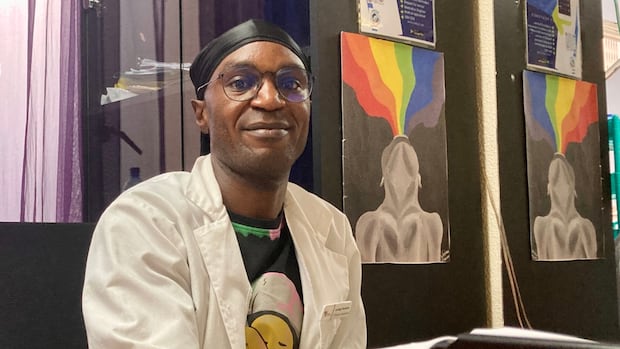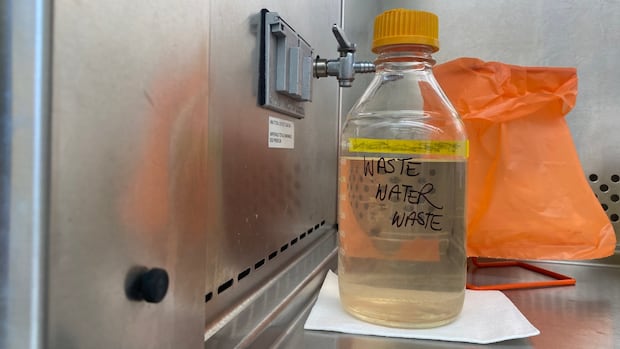On a Friday night in March 2019, Leon-Jamal Daniel Barrett concluded that humanity was corrupt and his only means to save it was by having “sexual congress” with a woman chosen by God.
The fact Barrett took magic mushrooms in the hours before coming to this realization would later prove pivotal to his being found not guilty for what happened next.
“He waited at his house for this woman to come,” wrote Surrey provincial court judge Timothy Hinkson.
“When she did not, he left his home, believing that if he walked anywhere, God would eventually bring them together.”
Intoxication to the point of ‘automatism’
Instead of a woman chosen by God, Barrett encountered a terrified stranger, who fought him as he knocked her to the ground, tried to kiss her and “smashed” her left breast before removing his clothes, pushing her down a set of steps and trying to pull her jeans off.
In a decision delivered in March but posted last week, Hinkson acquitted Barrett of sexual assault, breaking and entering, and wilfully obstructing a police officer after he argued the magic mushrooms put him in a state of automatism that rendered him not criminally liable for his actions.
The case, which the judge called “unusual,” highlights the long and controversial legal history surrounding horrific acts of violence and claims of automatism — a term describing unconscious, involuntary behaviour.
Although the incident happened in 2019, Barrett’s trial was put on hold while the Supreme Court of Canada considered another case in which a naked Calgary man beat a university professor with a broom handle after consuming magic mushrooms and copious amounts of alcohol.
In 2022, the nation’s top court struck down a section of the Criminal Code meant to prevent people from arguing extreme intoxication as a defence for offences such as sexual assault, assault, and breaking and entering.
Section 33.1 has since been amended, but the new rules did not apply to Barrett.
‘She bit his tongue as hard as she could’
According to the ruling, “there is no doubt as to whether or not Mr. Barrett did what he is accused of.”
Barrett, a dual citizen of the United States and Canada, was living in his aunt’s basement suite and working for a landscaping company when he decided to eat some magic mushrooms an hour or so after smoking cannabis while relaxing after work.

The 30-year-old, who suffered from depression and social anxiety, claimed cannabis “seemed to help with his mental health” and “had seen videos that led him to believe that magic mushrooms could help him with his depression.”
“The first time he used them, Mr. Barrett ingested the mushrooms in a tea,” Hinkson wrote.
“He found the effect stronger than he did when he ate them, which is how he ingested them on the other occasions. Mr. Barrett was less experienced with magic mushrooms than he was with cannabis.”
Barrett’s 49-year-old victim screamed and yelled repeatedly for him to stop as he pulled her down to the ground.
“He was pulling at her pants, she felt, in an effort to remove them. When he tried to kiss her, she repeatedly poked at his face with her key. When he put his tongue in her mouth, she bit his tongue as hard as she could,” the judge wrote.
“During the course of this incident, she sustained a cut to her lip. After the bite, she felt blood, but she did not know if it was coming from Mr. Barrett’s tongue or the cut on her lip.”
The woman ultimately escaped, and Barrett returned home, where he stabbed himself in the chest after resolving to “take his own life so that another version of himself could be reborn and reincarnated and then maybe they could save the world.”
According to the decision, he left the house again and went looking for another woman. Instead, he encountered police, who said the naked, overheated and blood-covered man appeared “oblivious” to pain as a dogpile of officers fought to restrain him.
Protecting the ‘morally innocent’
Public outrage over the defence of extreme intoxication erupted in 1994 when the Supreme Court of Canada overturned the conviction of a Quebec man who sexually assaulted a partially paralyzed friend of his wife after consuming a one-litre bottle of brandy and several bottles of beer.
In response, Parliament introduced Section 33.1 of the Criminal Code which effectively prevented anyone from arguing that extreme intoxication led them to commit so-called “general intent” crimes like sexual assault or assault.

But in 2022, the Supreme Court of Canada struck down the section as unconstitutional in the case of Matthew Brown, a Mount Royal University student-athlete who broke into the home of professor Janet Hamnett following a night of drinking and taking magic mushrooms.
Witnesses said Brown was naked and “screaming like an animal” when police found him. He expressed remorse and apologized twice, in court and outside, after his acquittal.
The top court said Section 33.1 was fundamentally flawed because of “the risk of wrongful convictions it presents” by punishing an accused in a situation where no reasonable person could have predicted that whatever they were taking might render them an automaton.
“It contravenes virtually all the criminal law principles that the law relies upon to protect the morally innocent,” the court said.
“It enables conviction where the accused acted involuntarily, where the accused did not possess the minimum level of fault required, and where the Crown has not proven beyond a reasonable doubt the essential elements of the offence for which an accused is charged.”
In response to the Brown decision, Parliament amended Section 33.1.
“The new provision ensures an individual who harms another person while in a state of extreme intoxication will be held criminally responsible … if there was a foreseeable risk they could violently lose control over their actions … and they failed to take enough care to prevent that risk,” the government says on a website about the change.
‘Too bad you suffered that huge, violent trauma’
In his decision, Hinkson said Barrett’s case came at a time when “the law was evolving.”
“This case, therefore, will not open the floodgates,” he said.
But Isabel Grant, a professor at the University of British Columbia’s Allard School of Law, said the case was still troubling.
She told CBC News she is concerned the recent changes to the Criminal Code around extreme intoxication might not have changed the outcome in Barrett’s case.
“I don’t agree that the complainant should bear the full brunt of his decision to combine magic mushrooms with cannabis and get himself that intoxicated,” Grant said.
“What we’re saying is that, well, too bad that you suffered that huge, violent trauma that has left you with chronic pain — he was morally innocent. I think that’s not a great message for the criminal justice system to be sending.”
Hinkson noted that the woman Barrett attacked “continues to suffer pain, and remains horrified and traumatized by these events.”
“Mr. Barrett will not face a conviction in this matter, but he will live with the knowledge that he made a choice that resulted in temporarily losing his mind and committing an appalling series of acts against a stranger,” the judge concluded.
“The scar that he bears will be a constant reminder of these actions. It is my sincere hope that he finds some way to redeem himself.”






